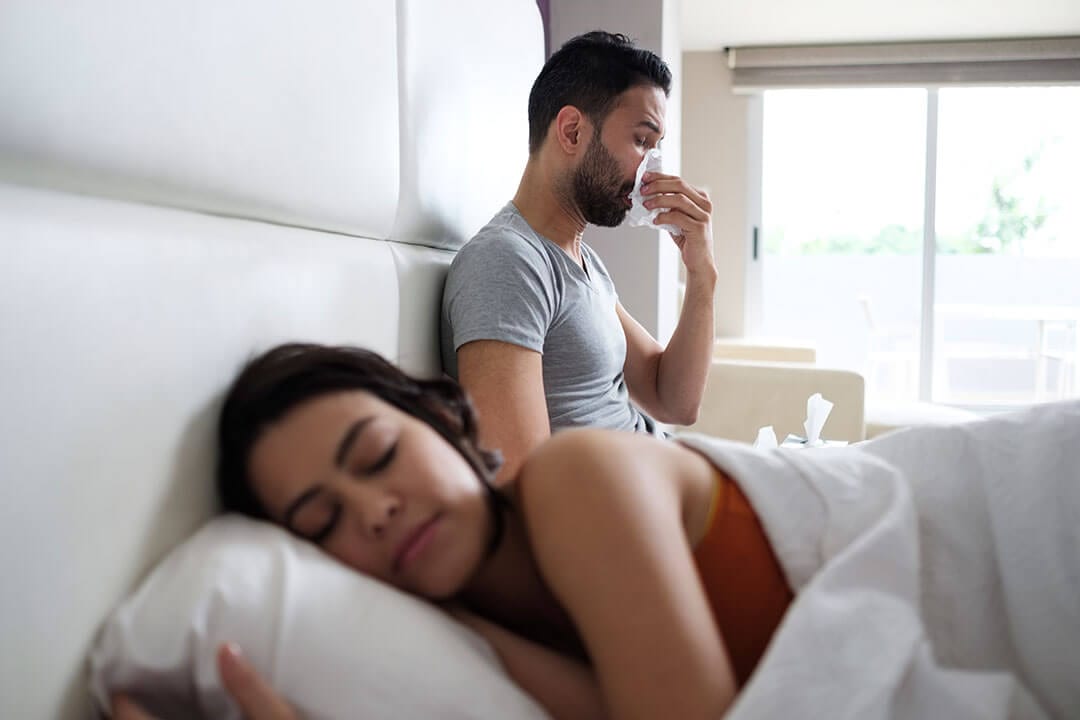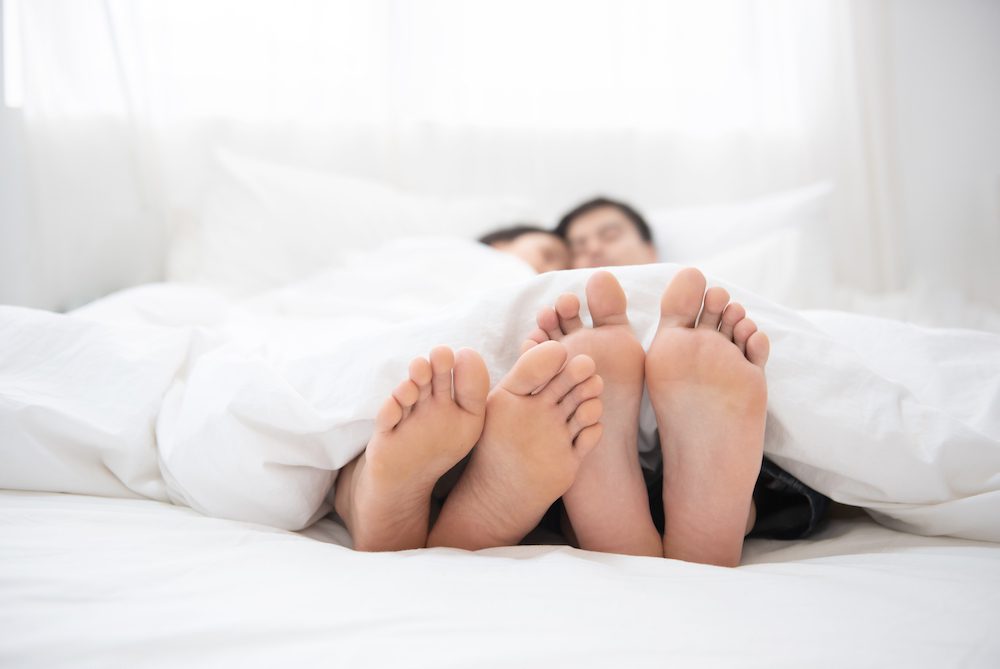Waking up with a headache is an unpleasant way to start your day, and research suggests that morning headaches are all too common. A large international study found that chronic morning headaches affect one in 13 people, and up to 60% of snorers.
Morning headaches are often linked to sleep disorders or other underlying conditions. Knowing the cause of your headache can help you take appropriate steps to sleep better and prevent pain.
What Are Morning Headaches?
Headaches range from dull, throbbing aches to sharp, stabbing pain or tightening sensations in the head. Morning headaches encompass a variety of headache types that can be present upon waking or shortly thereafter.
Trouble Sleeping?
We can help. Tell us about your sleep to get a free Sleep Doctor score with recommendations for better sleep.
What Causes Morning Headaches?
Headaches and sleep problems share several brain pathways, particularly in the region of the hypothalamus. Sleep disorders have been shown to increase sensitivity to pain, and in turn, headaches can cause problems with sleep. In other cases, sleep problems and morning headaches may both arise due to a third factor, such as stress, anxiety, depression, type 2 diabetes, or alcohol consumption.
Sleep Disorders That Can Cause Morning Headaches
Sleep disorders are linked to a variety of different types of headaches including cluster headaches, hypnic headaches, migraines, and tension headaches. There are a few sleep disorders in particular that may contribute to morning headaches:
- Obstructive Sleep Apnea: People with sleep apnea often report frequent morning headaches due to fluctuating carbon dioxide and oxygen levels in the blood. These are referred to as sleep apnea headaches.
- Insomnia: People with insomnia struggle to fall or stay asleep. Insomnia is associated with a higher risk of headaches. Sleep disturbances are reported to trigger migraines, and tension headaches are more likely to become chronic in people who experience poor sleep quality.
- Bruxism: Also known as teeth grinding, bruxism may be triggered by stress or other factors. The grinding and clenching of the teeth and jaws during the night has been shown to increase the risk of waking up with a tension headache or migraine.
- Restless Legs Syndrome: There is a strong relationship between restless legs syndrome (RLS) and migraines, which are both thought to arise in part due to problems with shared brain pathways or iron metabolism. RLS is also related to tension headaches. Researchers believe that anxiety and depression may contribute to both conditions.
Other Causes of Morning Headaches
Aside from sleep disorders, some other causes of morning headaches are:
- Dehydration: Water is essential to many processes in the body. When you are not drinking enough water you can become dehydrated, which may be one reason you are waking up with headaches.
- Too Much or Too Little Sleep: Both oversleeping and poor-quality sleep can raise the chances of a tension headache the next day. Sleep deprivation lowers the pain threshold, and people with chronic headaches experience more severe pain when they go short on sleep.
- Snoring: Snoring contributes to the development of chronic headaches for people who already experience occasional headaches.
- Depression and Anxiety: Research suggests that anxiety and depression contribute to both poor sleep and headaches, as well as raise sensitivity to pain.
- Using the Wrong Pillow: Pillows are designed to reduce tension by keeping the spine in a neutral position. A pillow that fails to provide enough support for your head and neck may contribute to headaches overnight. If your morning headaches occur along with neck, shoulder, or upper back pain, you may need to use a higher or lower pillow.
Tips for Morning Headache Relief
If sleep problems can exacerbate headaches and make it more difficult to find relief, then adopting healthy lifestyle and sleep hygiene habits may help you sleep better and reduce the frequency of morning headaches:
- Maintain a Bedtime Routine: Establish a routine of calming pre-bedtime activities to help you wind down for sleep. Aim to go to bed and wake up at the same time each day, even on the weekends.
- Reduce Caffeine and Alcohol: Experts recommend staying away from alcohol and stimulating drinks if you are experiencing headaches. Certain medications can also prompt headaches, so talk to your doctor about switching medications or lowering your dose if this is a problem.
- Drink More Water: Ensure that you are drinking enough water throughout the day to prevent dehydration at night.
- Improve Your Bedroom Environment: Keep your bedroom dark, quiet, and cool for optimal sleep.
When to Talk to Your Doctor
You should talk to your doctor if you start experiencing headaches that you did not experience before, if the headaches wake you from your sleep, or if your headaches change in any way, especially if they are severe. You should also contact a healthcare professional if your morning headaches are accompanied by any other symptoms, such as loud snoring, vomiting, or feeling tired during the day. In preparation for your doctor’s visit, consider keeping a journal next to your bed to record the frequency and intensity of your morning headaches.
Your doctor can run tests, including a sleep apnea test at home, to see if you might have a treatable sleep disorder or other medical condition. They can also work with you to change your medications and implement productive lifestyle habits to help reduce morning headaches.
References
Ask the Sleep Doctor
Have questions about sleep? Submit them here! We use your questions to help us decide topics for articles, videos, and newsletters. We try to answer as many questions as possible. You can also send us an email. Please note, we cannot provide specific medical advice, and always recommend you contact your doctor for any medical matters.




